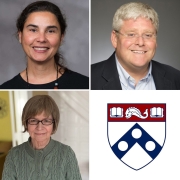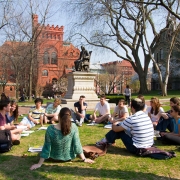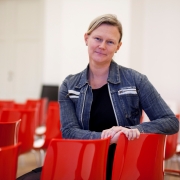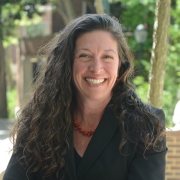Three from Penn Arts & Sciences Elected 2024 AAAS Fellows
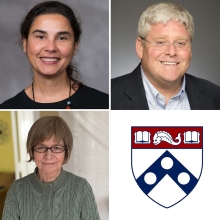
Three professors from Penn Arts & Sciences have been elected 2024 American Association for the Advancement of Science (AAAS) Fellows, among five total from Penn this year. They join 471 researchers being honored across 24 scientific disciplines.
AAAS, a society with a mission to “advance science, engineering, and innovation throughout the world for the benefit of all,” has named a class of Fellows since 1874. This year’s honorees will be celebrated at a forum in Washington, D.C., in June. From Penn Arts & Sciences, they include:
Marlyse Baptista, President’s Distinguished Professor of Linguistics
Baptista is being recognized “for distinguished contributions to the field of linguistics, particularly for theoretical and cognitive modeling of Creole languages, language contact, and language emergence.” At Penn, she is director of the Language Contact and Cognition Lab, as well as a MindCORE faculty affiliate. Her research focuses on the cognitive processes involved in the emergence and development of Creoles. She has created a theoretical model of language convergence in multilingual settings and has conducted interdisciplinary collaborations investigating Creoles, using empirical, theoretical, experimental, and computational methods.
M. Susan Lindee, Janice and Julian Bers Professor of History and Sociology of Science
Lindee’s work explores the history of genetics, radiation and nuclear risk, and militarized science and technology in the 20th century. Her books include Rational Fog: Science and Technology in the Modern War, Suffering Made Real: American Science and the Survivors at Hiroshima, and The DNA Mystique. Lindee is being recognized “for historical scholarship that grapples with the thorny challenges of modern science—genetics, radiation, and the technologies of war—and invites ethical action.”
Christopher B. Murray, Richard Perry University Professor
Murray’s research focuses on innovative methods to tackle critical challenges in energy sustainability, environmental protection, information processing, and human health. By bridging disciplines, he develops novel chemical techniques that create tiny building blocks measuring just 1 to 100 nanometers—about 100,000 times smaller than the width of a sheet of paper. He is being recognized “for distinguished service to the field of nanochemistry, particularly for the synthesis of nanocrystals with precisely controlled dimensions and nanocrystal self-assembly, enabling the development of nanocrystal thin films and devices.”
For the full announcement, including information about the other fellows from Penn, visit https://penntoday.upenn.edu/news/five-penn-elected-2024-aaas-fellows.
